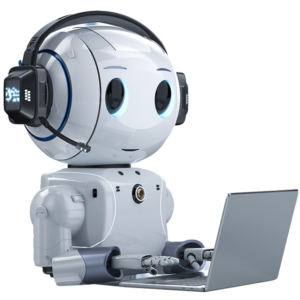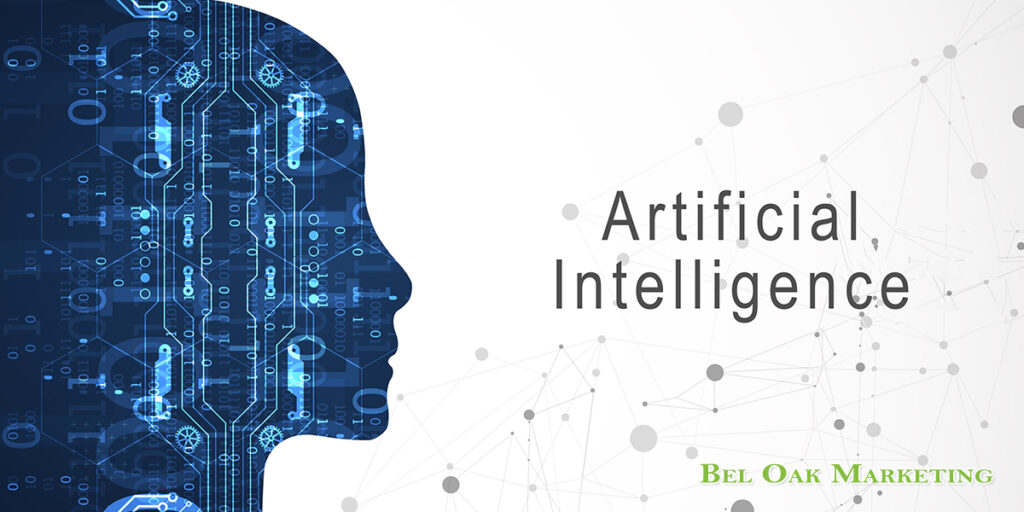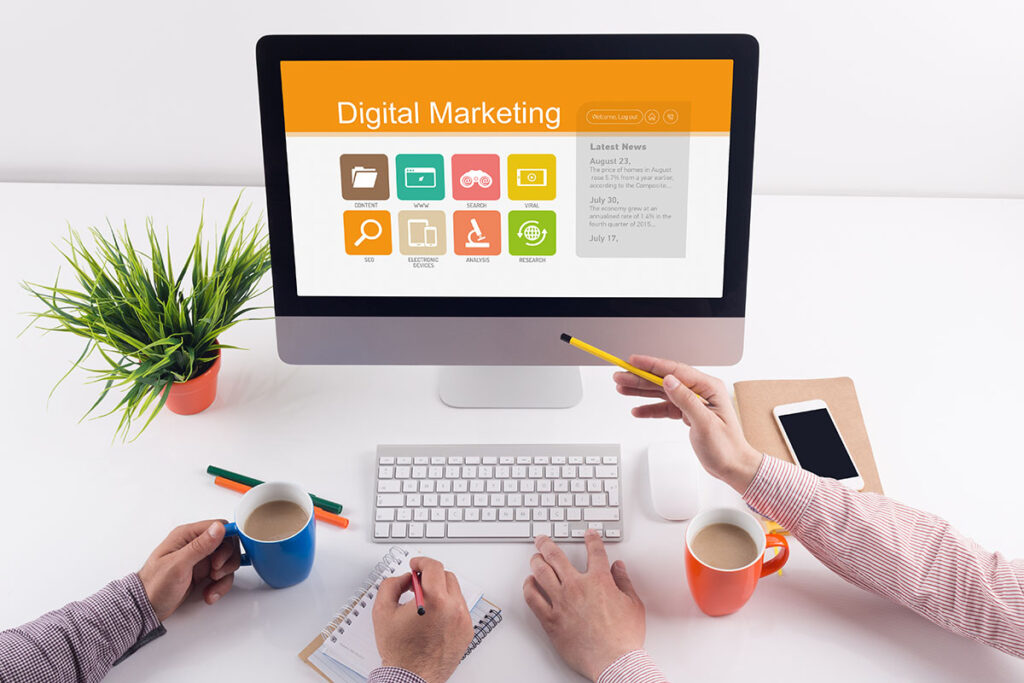Artificial intelligence (AI) has been evolving rapidly in recent years, making its way into different industries, including marketing. AI technology has the ability to create content and assist marketers in their efforts. The use of AI in marketing is becoming more popular among companies and agencies. AI-generated content (AGC) has many advantages, including being faster and cheaper than human-generated content (HGC). The question now is, will AI-generated content eventually dominate the marketing industry?
Machine Learning Based on Human Generated Content
The first phase of AGC development involves machine learning or data training based on HGC. AI learns from human-generated content, and through data analysis, it can understand the patterns and structure of the content. This process allows AI to learn how to create content similar to what humans produce. This phase is already being implemented by many companies and agencies in the form of chatbots, which use AI to provide customer support and answer queries.
With the development of natural language processing (NLP), AI can now create more complex content such as product descriptions, social media postings, and even articles. The technology has reached a point where it can produce content that is indistinguishable from that created by humans. In some cases, AGC can even outperform HGC in terms of quality and efficiency. This phase is expected to continue to grow in popularity as companies seek to improve their content marketing strategies.
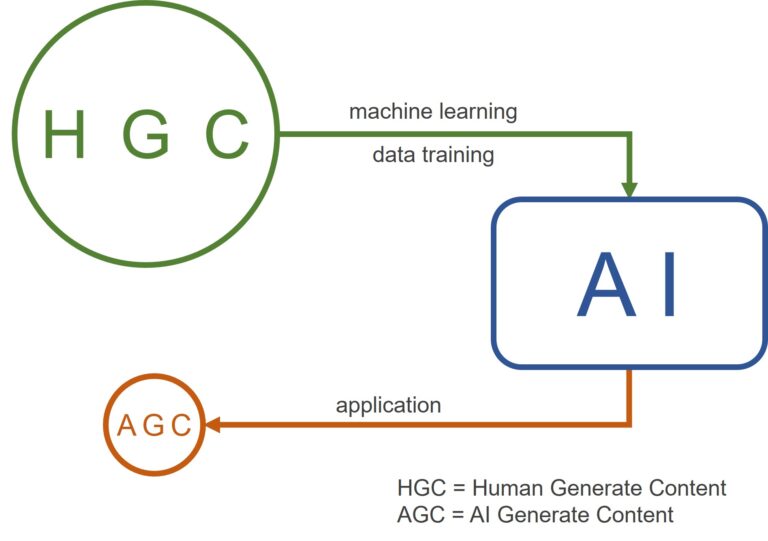
Exponential Growth of AI Generated Content
The second phase of AGC development involves the exponential growth of AI-generated content, leading to the domination of the industry. As more data is created and consumed, the amount of HGC generated remains fixed. In contrast, AI can generate content at an exponential rate, leading to an increase in its share of the content market.
AGC can create content in various formats and languages, making it accessible to a wider audience. As AI continues to develop, it can even analyze user data and behavior to create personalized content that resonates with the target audience. This level of personalization and efficiency is difficult to achieve with HGC.
The dominance of AGC is inevitable, and businesses need to prepare in advance for this transition. The shift towards AGC will have a significant impact on the job market and the skill sets required for content creation. Companies need to start incorporating AI into their marketing strategies to stay competitive.
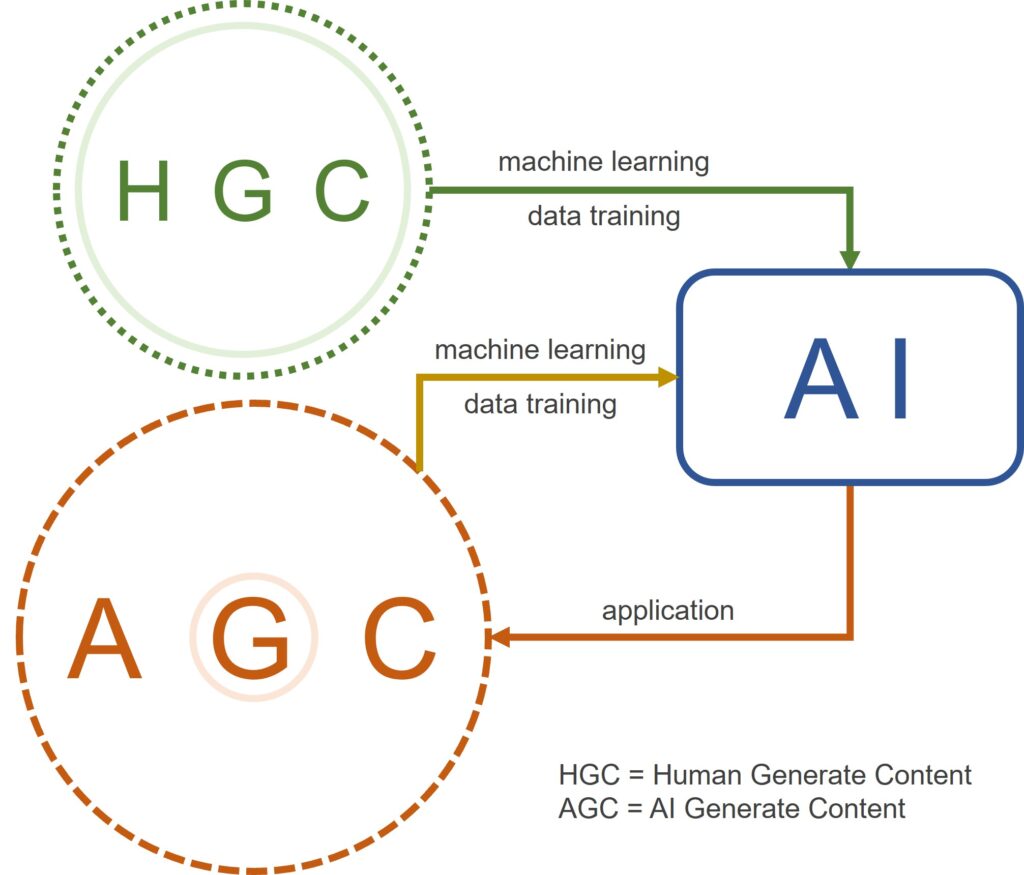
Advantages of AI Generated Content
The advantages of AGC are clear. Firstly, it is faster and cheaper than HGC. This is particularly useful for companies with a limited budget and a need for a large amount of content. AGC can produce content in a matter of minutes, while it could take days or even weeks for a human to produce the same amount of content.
Secondly, AGC is not limited by human factors such as tiredness or writer’s block. AI can generate content 24/7 without the need for breaks or vacations. This means that companies can have a constant flow of content without worrying about productivity issues.
Thirdly, AGC can be customized to suit different target audiences. AI can analyze user data to create personalized content that resonates with each individual user. This level of personalization is difficult to achieve with HGC, as it requires a lot of time and effort to create content that suits each individual user.
The Future of AI Generated Content In Marketing
As AI continues to develop and improve, it is clear that AGC will become the dominant force in the marketing industry. Companies that do not incorporate AI into their marketing strategies risk falling behind their competitors.
However, it is important to note that AGC does not completely replace HGC. Human input is still required to ensure that the content is appropriate and aligns with the company’s brand and values. AI can assist in content creation, but it cannot replace the creativity and originality that humans can provide.
Additionally, the development of AGC also raises ethical concerns. As AI becomes more sophisticated, there is a risk of it creating misleading or biased content. The responsibility falls on companies to ensure that their AI-generated content is ethical and transparent. This can be achieved by implementing guidelines and regulations for AI-generated content.
The shift towards AGC also has implications for the job market. As AI takes over some of the tasks that were previously done by humans, there will be a shift in the skills required for content creation. Jobs such as content writers and editors may become less in demand, while roles that involve AI implementation and management will become more important.
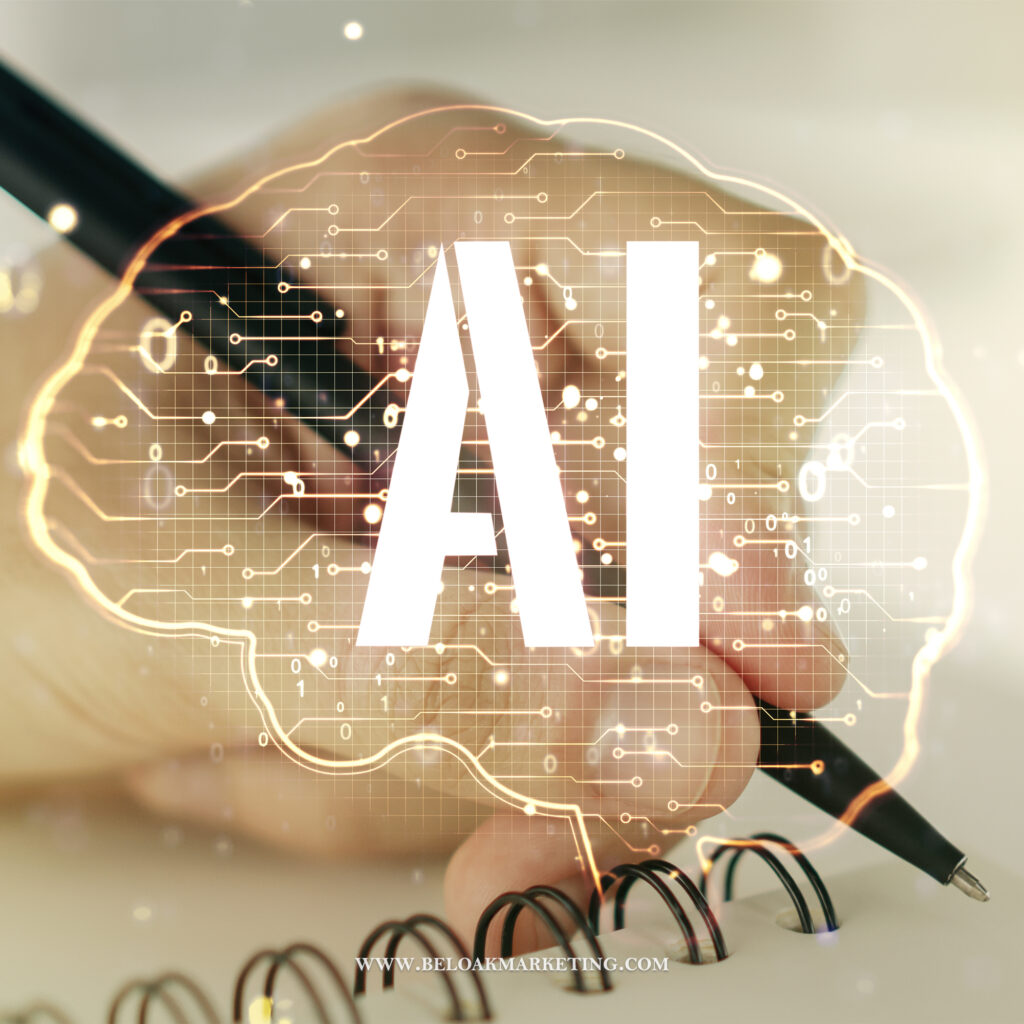
Conclusion
In conclusion, AI-generated content is becoming more prevalent in the marketing industry, and it is expected to dominate in the future. The advantages of AGC such as speed, efficiency, and personalization make it an attractive option for companies. However, the development of AGC also raises ethical concerns and has implications for the job market. Companies need to start incorporating AI into their marketing strategies to stay competitive, while also ensuring that their AI-generated content is ethical and transparent. The shift towards AGC is inevitable, and businesses need to prepare in advance for this transition.

